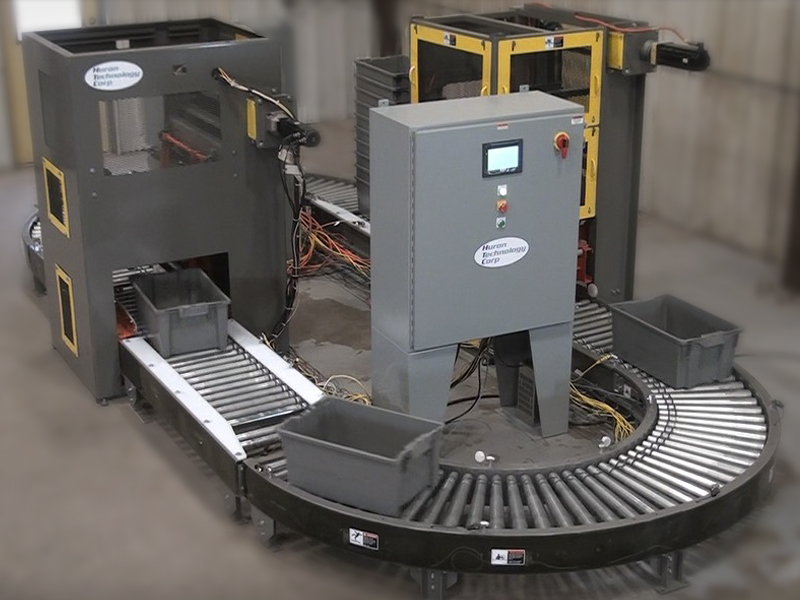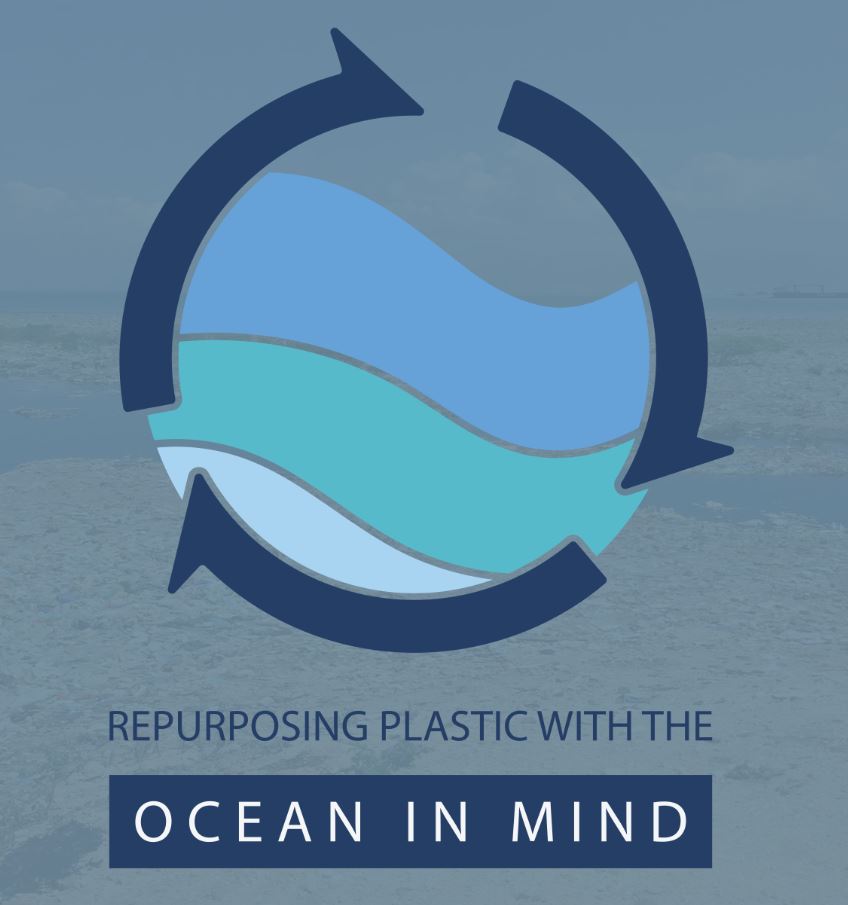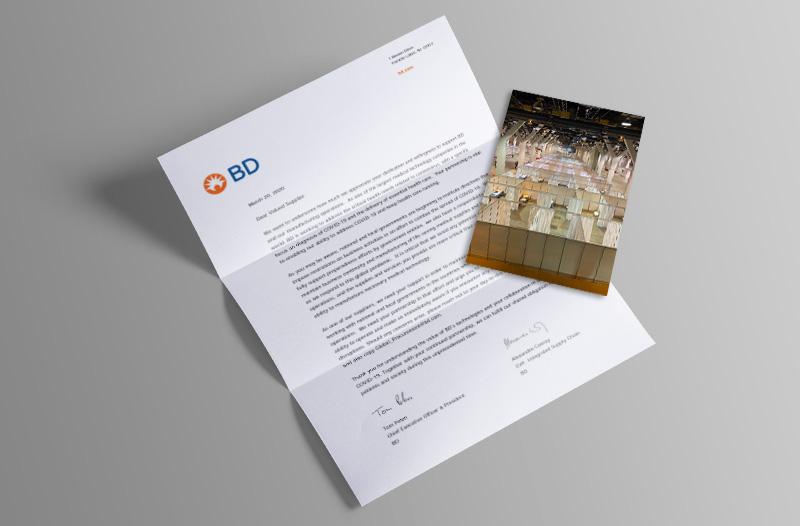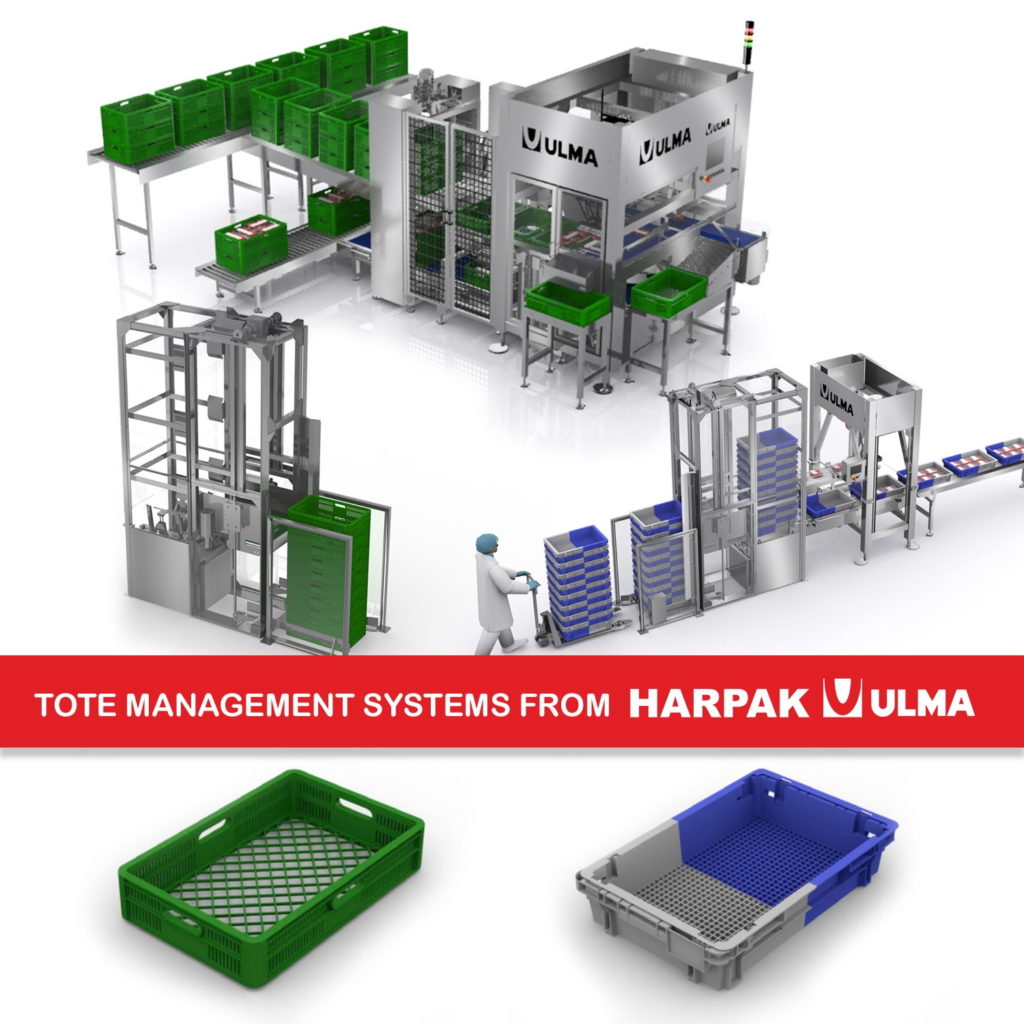KMH Systems, Inc
Keneco, Inc.
IPL Products, Ltd.
International Plastics
Hy-Tek Intralogistics
Hardy-Graham, Inc.
Hardigg Industries, Inc
Hardy storage manufacturing, inc.
Great Southern Equipment
Loadsense Technologies
Quantum Storage Systems
Akro-Mils
Warehouse Liquidation
EGA Products, Inc.
SENNING joins the OPTIMA group

Since October 2020, Senning GmbH has joined the Optima Group based in Schwaebisch Hall. The Bremen-based company specializes in the production and packaging of paper and tissue products. Senning was formerly known as Christian Senning Verpackungsmaschinen GmbH & Co. KG, and in the future, it will be operating under the name Senning GmbH. “The production and packaging technology for paper tissues and napkins developed by Senning constitutes an ideal addition to our product portfolio,” says Hans Buehler, the Managing Director/CEO of the Optima Group. Optima has already successfully implemented machine projects for the paper and tissue sector. Through integration and associated synergy effects, Optima is strengthening its market position for turnkey solutions. Senning’s new, the revised organizational structure makes it well prepared to meet the demands and questions of its customers. An experienced company with a worldwide presence The medium-sized family business was founded by Christian Senning in Bremen in 1949, where it is still based to this day. Annette Bengs is the third generation of the family to head up the company as its Managing Director. Senning has over 70 years of experience in the construction of production and packaging machines for the paper and tissue industry, and has agents worldwide, making it a preferred partner for complex mechanical engineering projects. The company sells over 85 percent of its equipment to foreign countries. In collaboration with its new colleagues, Optima offers integrated packaging systems from a single source. “We are excited about the company expansion, and look forward to working on joint projects,” says Buehler.
Huron Technology Corp. announces the Hi-Speed Tote Stacker and De-Stacker

Huron Technology Corporation has introduced the Hi-Speed Tote Stacker and De-Stacker which is ideal for high volume automated tote handling applications. The Tote Stacker and De-Stacker optimize the utilization of valuable floor space by effectively increasing the storage density of empty totes. The system’s compact design makes it suitable for locations that require a small footprint. The Tote Stacker and De-Stacker provide an efficient way to transport full stacks of totes, leading to greater worker safety through reduced in-plant traffic and manual handling. The Tote Stacker & De-Stacker offers many practical options based on the application, with speed selection up to 20 totes per minute, pneumatic or electric actuation, and 24 VDC power capabilities. The Tote Stacker & De-Stacker is also maintenance-friendly and modular so it can easily fit within the current conveyor system. Learn how you can better stack, store and save valuable floor space with their Tote Stacker and De-Stacker, and discover a safer, more organized facility.
Episode 98 – Drader at MODEX 2020

On this episode, I was joined by John Pritchard of Drader Manufacturing at MODEX 2020. John handles Business Development for Drader and we discuss their business, the warehouse bins they have, and also customer success stories. Key Takeaways Drader Manufacturing is a plastics manufacturer based in Canada that does all kinds of manufacturing but they also focus on the warehousing sector. They have created the Shopping Pick Bin specifically for the warehouse which has many added benefits to allow your operation to run more efficiently and look a lot neater. Your pick bin can be an incredibly important factor in your operation because of how you are able to store your SKUs. Not only is it important to store them in an efficient matter but it is also important to have flexibility within those bins for different SKUs or different layouts. The Drader Shopping Pick Bin allows you to put in multiple dividers giving you the flexibility to put multiple SKUs in one bin and adjust the size of each compartment depending on the quantities needed. One of the most interesting things about the Shopping Pick Bin, to me, is that Drader has had the idea to have a perforated bottom which allows for water flow. As you will hear us discuss in the podcast, this is a big deal as it means that you do not have to have sprinkler systems going as deep into the racks because water will flow through the bins in the event of a fire. This can be a huge cost saving operationally and also an easier way to deal with local codes or ordinances. The bin is also designed to help your employee work better by giving visibility to the item and also having built-in handles for easy handling. This is very important for efficiency gains and employee comfort levels. I have worked with pick bins in the past that have not hand handles and it was very difficult to slide them in and out of locations when cycle counting or replenishing. These little features will help you improve significantly. Listen to the episode below and let us know if you plan on upgrading your pick bins in the comments. EP 98: Drader at MODEX In this episode, host Kevin Lawton talks to John Pritchard of Drader Manufacturing about their business, their warehouse pick bins, and the benefits of using them. For more information on Drader Manufacturing head to their website here. To connect with John find him on LinkedIn here.
Orbis launches new sustainability initiative to repurpose coastline waste

New recycled plastic material from coastline waste broadens sustainable packaging product line ORBIS® Corporation, an international provider in sustainable reusable packaging, is offering a new recyclable plastic material for use in a variety of its reusable packaging solutions. ORBIS’ Ocean in Mind program incorporates packaging made with recycled plastic material recovered near major waterways, helping to clean up coastline waste and stimulate local economies. Once collected, the plastic is sorted, reprocessed, and used to make reusable packaging for the supply chain. ORBIS collaborates with customers to integrate this material into products to fit their specific supply chain needs and sustainability goals. “ORBIS is always exploring material innovations in the sustainable packaging industry,” said Breanna Herbert, associate product manager and sustainability lead at ORBIS. “By design, our products help reduce waste through re-use. This initiative takes recycling and reusability a step further by recovering waste from coastlines and repurposing it back into our product. We’re excited to offer our customers a material that not only improves supply chain sustainability but repurposes plastic at risk of entering our waterways.” With this new capability, coastline plastic waste is blended with other materials during the ORBIS manufacturing process to create finished goods. Once that packaging reaches the end of its service life, it’s fully recyclable through ORBIS’ recycling program, which recovers and reprocesses obsolete and surplus packaging into new products. ORBIS also works with today’s leading companies to analyze their supply chain for opportunities to drive sustainability, operational efficiency, and cost savings. Using life-cycle data, ORBIS compares reusable and single-use packaging and calculates the environmental impacts to provide companies with unbiased measurable data as they make the switch to reusables. ORBIS’s portfolio also includes reusable plastic totes, pallets, dunnage, and bulk systems made from recycled plastic. This material recovery offers a new stream of recycled content for reusable plastic packaging that not only reduces waste but conserves natural coastlines. ORBIS plans to grow this offering with additional customers as demand increases.
Flexcon supplies medical containers to field hospital

For Ken Beckerman, it all came down to one picture of McCormick Place, Chicago’s expansive convention space, wall to wall with hundreds of makeshift hospital rooms constructed to meet the expected wave of coronavirus patients. With it was a thank you letter email from a customer he’d never met for a container delivery he’d almost forgotten. The experience provided a nice lift during these days of social distancing and came as a complete surprise. You see, weeks earlier, the McCormick Place containers were just another order with odd specs, a pinched timeline, and an unidentifiable buyer. The fact that the containers would play a part in something this significant never occurred to him. And even if it had, it might not have changed anything. Over the past weeks of the pandemic, Flexcon has responded to corona virus-related requests and regular ongoing requests with commitment. Team members were focused on getting the job done, and in many ways, the current environment is giving the company a chance to do what they do best. “We get excited about a challenge, and we love to come through for people,” says Ken Beckerman, president, and CMO of Flexcon. “A lot of times we don’t even know if our orders are corona virus-related. A lot of it is indirect. We’re just focused on keeping customers going efficiently and safely and keeping supply chains moving.” How Flexcon is contributing Some of the projects that are known to be supporting COVID-19 prevention and response efforts include providing hundreds of bins in varying sizes to the field hospital that was set up in Chicago’s McCormick Place. The color-coded containers were created on a rush basis and delivered to Becton, Dickinson, and Company—the end-client on the project. Flexcon also provided containers for vials and laboratory equipment used in support of Medtronic’s work making critical, lifesaving products to treat COVID-19 conditions. Abbott Labs, a company on the leading edge of creating rapid tests for the coronavirus, ordered specialized containers related to their operations during the pandemic. On an accelerated timeline, Flexcon designed and prototyped models to meet the customer’s specific requirements. Flexcon is also doing a project for an automation company that works with Amazon in Europe. As an example of the times, it is not known what the containers will be used for, but it is COVID-19 related and the need is urgent. Providing stress-relief is a key service attribute in these days of the pandemic, and Flexcon is stepping up. “Medical companies have a lot of things to think about. We’re relieving them of one major part of their jobs that they’d have to manage, monitor, and stress about. We’re taking that off their plate so they can focus on other things,” Beckerman explains. Continuity during crisis Maintaining continuity during a crisis is a hard-won trait for Flexcon. Their experience during Superstorm Sandy made the company conscious of the need to be prepared to serve customers continuously in the event of any natural disaster or economic disruption. During that event, Flexcon went without services for two weeks. In the time since, the company has installed Virtual Private Networks (VPN) for all of its employees, which has enabled them to work from home without interruption. Additionally, they have dispersed container production among a dozen facilities. As a result, the company has remained fully operational during the current crisis. Keeping things moving That continuity has benefitted Flexcon’s non-medical customers as well during the pandemic. The need for help finding the right container or right solution for transportation has not slowed down. Customers building distribution centers have schedules that rely on the totes, bins, and plastic pallets Flexcon provides. So far during the current crisis, Flexcon has been able to continue supporting them. “No one wants to be held up,” Beckerman says. “We’re a small piece of a big puzzle and if we don’t do our part, the puzzle can’t be completed.” Business, as usual, has been business as unusual of late. Flexcon has had to institute all of the protective protocols to continue work in onsite locations. In order to meet spacing requirements, the company has adapted by adding shifts rather than crowding team members together. No matter what the coming weeks of the COVID-19 crisis look like, Flexcon is committed to providing customers with the containers, and continuity, they need. “We just continue to do what we do to help make today’s medical and economic challenges a non-issue for our customers so they can get what they need when they need it,” Beckerman says.
Harpak-ULMA announces Automated Tote Management System for Food

Automating sustainable packaging practices for improved ROI Harpak-ULMA, the North American arm of ULMA packaging, has announced the commercial availability of an automated tote management system for food producers. This approach to reusable secondary packaging represents an addition to the innovative sustainability efforts launched a year ago under the global #ULMAweCare initiative. #ULMAweCare is a long-term global program to address the mounting packaging sustainability challenges facing today’s manufacturers that seeks to advance sustainability through innovative, environmentally friendly solutions that promote the reduction of packaging and the use of recyclable materials. Tote systems employ reusable containers made of plastic or cardboard to transfer products, accommodating a wide range of products and primary packaging types. Reusable plastic totes not only reduce carbon emissions, waste, and natural resource consumption, they offer improved product protection versus cardboard alternatives. Durable plastic totes are easy to clean, hygienic, resist water and chemicals, and are consistently sized. Plastic totes have been shown to reduce product damage by up to 96% while lowering costs by as much as 27% through more efficient, reusable distribution processes. Harpak -ULMA’s automated tote management system utilizes a closed-loop process to drive cost savings. In the initial automated operation, stacked foldable totes are de-palletized, de-stacked, opened using a multiformat opener (or rejected as unopened), distributed, and delivered to the packaging process. In the return phase, totes are collected, prepared/cleaned, and conveyed for setting up again. While tote systems can leverage traditional material handling equipment, stacking and de-stacking often requires manual intervention. The company’s automated system increases reliability and throughput, reduces long-term costs, and provides ergonomic improvements that enhance workplace safety. Since totes are available in a variety of types and open/stackable configurations, Harpak-ULMA advocates tote loading robotics with flexible, customizable end-of-arm tooling that can be tailored to handle unique tote requirements. The solution employs a 4 Axis tote-packing robot that operates at up to 80 trays per minute. The specific palletizing system employed for secondary packaging will be guided by a combination of product versatility and production volume requirements. Harpak-ULMA designed an associated buffer system to optimize palletizing equipment performance for either robotic or mechanical palletizers. Harpak-ULMA Automation Manager John Weddleton offered some insight for customers looking to switch from RSC (regular slotted carton) boxes to totes. “First, it’s critical to understand your complete production process, from processing to packaging. Number two, don’t underestimate the importance of tote automation. In this solution, totes arrive washed, folded and stacked to a height of seven feet. Sans automation, manually feeding would require staff to pull the top layers off a 7-foot stack, as well as endure a lot of lifting, bending, and placing – that’s more labor and opens up the possibility of worker injuries. Third, keep in mind that palletizing requires more totes than RSC’s since totes are generally loaded with a single product layer while RSC boxes traditionally hold two or three product layers each. This not only increases the repetitive motions required to make a complete pallet, but it also affects the physical height of the completed pallets.” He added, “Anytime a packaging component makes multiple journeys, the number of cycles it can be used will have a big impact on your sustainability ROI. While automated, reusable solutions must address all these complex issues, they deliver significant benefits in terms of labor and operating cost reductions, worker safety, and productivity.” Kevin Roach, Harpak-UMA’s CEO, is an outspoken advocate for innovation in the packaging industry. His broad vision embraces everything from smart-connected packaging platforms that enable emerging technologies such as augmented reality, to advancements in reusable and recyclable materials that can help Harpak-ULMA’s customers address growing social concerns regarding natural resources. “We always strive to provide our customers with the lowest possible Total Cost of Ownership for their packaging solutions. Increasing our customers’ options through innovation-driven sustainability efforts has become a very important part of that equation,” Roach said. Harpak-ULMA leverages Allen Bradley’s industrial control systems as their platform of choice for smart, connected packaging solutions, including totes management. Ease of integration is key to accelerating innovation and achieving productivity gains at the digital transformation scale. Utilizing Rockwell Automation’s controls and information platforms offers Harpak-ULMA’s customers one of the industry’s most advanced integration capabilities, improving the ease and reducing the cost of embracing new innovative solutions. Customers easily adapt to market changes at less cost, improve OEE/MTBF/MTTR, productivity and safety metrics, overcome the challenges of aging and evolving workforce, and better control maintenance expenses with competitive parts sourcing.

